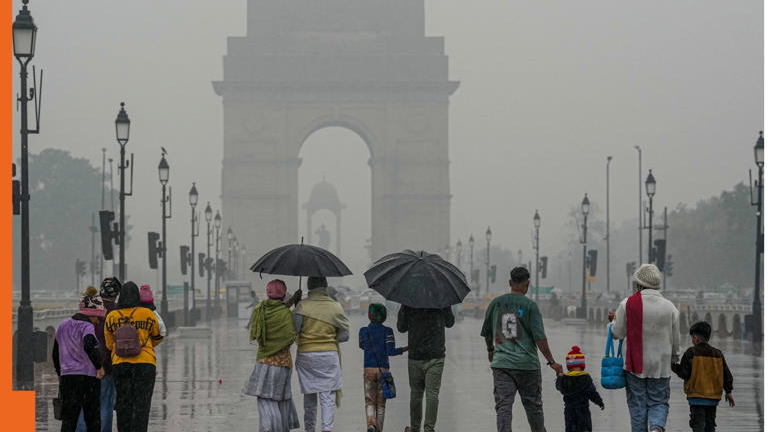
Key Highlights:
- Air Quality Deterioration: Delhi’s air quality index (AQI) soared from 275 to 396 due to unfavorable weather—low winds, fog, and cooler temperatures.
- GRAP Stage 4 Enforced: Measures aim to combat “Severe Plus” air quality levels, with predictions indicating AQI might breach 400.
Stage 4 Restrictions Include:
- Construction Ban: Suspension of all construction and demolition activities.
- Traffic Regulations:
- Ban on entry of non-essential diesel trucks into Delhi.
- Prohibition of BS-IV or older diesel heavy goods vehicles, except essential services.
- Schools:
- Hybrid learning for classes below 10th.
- Classes 10 and 12 permitted to remain in-person due to board preparations.
Understanding GRAP:
The Graded Response Action Plan (GRAP) is a pollution-control framework with actions across four escalating stages:
- Stage 1 – Poor (AQI 201-300)
- Basic dust control measures, regulated emissions from vehicles and industries.
- Stage 2 – Very Poor (AQI 301-400)
- Reduced vehicle usage and enhanced public transport options.
- Stage 3 – Severe (AQI 401-450)
- Halting some industrial operations and construction activities.
- Stage 4 – Severe Plus (AQI above 450)
- Immediate ban on construction, restrictions on non-essential vehicular movement.
Contextual Causes for Winter Pollution:
- Meteorological Factors: Calm winds and fog exacerbate the accumulation of particulate matter.
- Human-Caused Sources:
- Paddy straw burning in neighboring states.
- Vehicle emissions and firecracker use during festivals.
Critical Question:
Can stricter enforcement and alternative solutions (like stubble management technologies) make Delhi’s air sustainable year-round?




































Leave a Reply